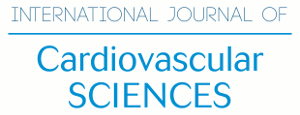Heart Defects, Congenital; School Health Services; Patient Compliance; Family Health; Social Cohesion; Adolescent; Quality of Life
In the last decades, we have been watching a remarkable increase in survival of children with congenital heart disease (CHD), due to advances in surgical and medical management, leading to a significant growth in the number of adolescents and young adults with the disease.11. Marelli D, Ionescu-Itu R, Mackie AS, Guo L, Dendukuri N, Kaouache M.. Lifetime Prevalence of Congenital Heart Disease 2000-2010. Circulation. 2014 Aug 26;130(9):749-56. In developed countries, the number of adults with CHD surpasses the number of children with CHD.22. Baumgartner H, De Backer J, Babu-Narayan SV, Budts W, Chessa M, Diller GP, et al. ESC Scientific Document Group. 2020 ESC Guidelines for the management of adult congenital heart disease.Eur Heart J. 2021 Feb 11;42(6):563-645. doi: 10.1093/eurheartj/ehaa554.
Unfortunately, prolonged survival has been achieved at a high cost, as an expressive number of patients continue to suffer from significant medical, psychological and social issues.33. Van der Bom T, Zomer AC, Zwinderman AH, Meijboom FJ, Bouma BJ, Mulder BJ. The changing epidemiology of congenital heart disease. Nat Rev Cardiol. 2011;8:50-60. The knowledge that CHD brings an individual burden is not a new concept. In 1964, Glaser44. Glaser HH, Harrison GS, Lynn DB. Emotional implications of congenital heart disease in children. Pediatrics 1964;33:367–79. concluded that “Despite benefits derived from these remarkable therapeutic gains, children with CHD face many difficulties in their efforts toward social and emotional adjustment.”55. Kovacs AH, Bellinger DC. Neurocognitive and psychosocial outcomes in adult congenital heart disease: a lifespan approach. Heart. 2021;107(2):159-67. doi:10.1136/heartjnl-2016-310862.
The change in the prognosis of these previously fatal diseases has required a broader understanding of outcomes for a better quality of life, including physical, psychological and social issues.
In this context, a review published in Arquivos Brasileiros de Cardiologia in 201466. Bertoletti C, Marx GC, Hattge SP Jr, Pellanda LC. Quality of life in congenital heart diseases. Arq Bras Cardiol. 2014;102(2):192-8. Doi:10.5935/abc.20130244. evaluated health-related quality of life in childhood and adolescence, with emphasis on CHD patients. The authors found conflicting results and suggested the need for further investigation such as parental life style, social support and coping strategies.
In this recent paper, Piccoli et al.,77. Piccoli A, Neiva-Silva L, Pellanda LC. Family Functioning of Adolescents with Congenital Cardiopathy in a Sample from Public Schools in Porto Alegre – RS. Int J Cardiovasc Sci. 2021; 34(6):599-607. studied the family functioning of adolescents with CHD. The study included 387 adolescents, 161 (41.6%) with CHD and 226 (58.4%) healthy adolescents from a public specialized hospital and public schools, respectively, through a socio-bio-demographic questionnaire and the Family Adaptability and Cohesion Evaluation Scale III (FACES III). They analyzed responses from the adolescents and from one of the parents to evaluate family functioning to have a better perception and evaluation of the families. The authors did not find an association between the presence of CHD and high-risk family functioning, and interestingly, the families of adolescents with CHD had a balanced functioning and lower risk when compared to families of healthy adolescents. The authors discussed several aspects of CHD families, such as a lifetime with the disease, development of abilities to deal with health challenges, close follow-up with a multidisciplinary team, among others. In addition, cohesion in the families of adolescents with CHD was higher compared with controls, mainly in two-parent families. Surprisingly, the mother's educational level did not show a direct relationship with the level of family cohesion. All these data reinforce the complexity of the nature of this type of study and the difficulties in understanding the various factors involved in this subject and the relationship between them.
The authors conclude that their “results are not in line with the paradigms that define chronic disease as a family dysfunction factor”, thereby demonstrating the uniqueness of the family functioning of CHD patients and the need for further studies in this very important field.
References
-
1Marelli D, Ionescu-Itu R, Mackie AS, Guo L, Dendukuri N, Kaouache M.. Lifetime Prevalence of Congenital Heart Disease 2000-2010. Circulation. 2014 Aug 26;130(9):749-56.
-
2Baumgartner H, De Backer J, Babu-Narayan SV, Budts W, Chessa M, Diller GP, et al. ESC Scientific Document Group. 2020 ESC Guidelines for the management of adult congenital heart disease.Eur Heart J. 2021 Feb 11;42(6):563-645. doi: 10.1093/eurheartj/ehaa554.
-
3Van der Bom T, Zomer AC, Zwinderman AH, Meijboom FJ, Bouma BJ, Mulder BJ. The changing epidemiology of congenital heart disease. Nat Rev Cardiol. 2011;8:50-60.
-
4Glaser HH, Harrison GS, Lynn DB. Emotional implications of congenital heart disease in children. Pediatrics 1964;33:367–79.
-
5Kovacs AH, Bellinger DC. Neurocognitive and psychosocial outcomes in adult congenital heart disease: a lifespan approach. Heart. 2021;107(2):159-67. doi:10.1136/heartjnl-2016-310862.
-
6Bertoletti C, Marx GC, Hattge SP Jr, Pellanda LC. Quality of life in congenital heart diseases. Arq Bras Cardiol. 2014;102(2):192-8. Doi:10.5935/abc.20130244.
-
7Piccoli A, Neiva-Silva L, Pellanda LC. Family Functioning of Adolescents with Congenital Cardiopathy in a Sample from Public Schools in Porto Alegre – RS. Int J Cardiovasc Sci. 2021; 34(6):599-607.
-
Editorial referring to the article: Family Functioning of Adolescents with Congenital Cardiopathy in a Sample from Public Schools in Porto Alegre – RS
Publication Dates
-
Publication in this collection
10 Mar 2023 -
Date of issue
Nov-Dec 2021

